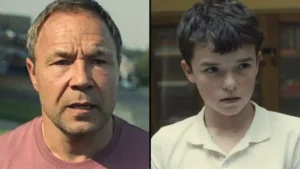One of the most puzzling human behaviors is the sudden loss of interest—whether it’s in a relationship, a job, a hobby, or even in ourselves. What once sparked excitement and engagement can unexpectedly become a source of boredom, irritation, or even dread. This shift often feels abrupt, but there are subtle, deeper mechanisms at play that make these changes almost inevitable in certain contexts.
The Nature of Interest
Interest is a form of attention fused with curiosity. It’s our brain’s way of signaling that something is worth our focus, energy, and time. It motivates exploration and fuels learning. However, interest is not static—it evolves with our experiences, emotional states, and perceptions. When the initial novelty wears off or when expectations aren’t met, interest can fade.
So why do people lose interest so suddenly? Here are some deeper insights into the psychological and emotional roots behind this common experience.
1. The Illusion of Novelty
Humans are wired to seek novelty. When something is new, our brains release dopamine, a neurotransmitter associated with pleasure and motivation. This chemical rush is why the beginning of a relationship or a new job often feels exhilarating. But once the novelty fades and routine sets in, the dopamine drops—and with it, the feeling of interest.
This doesn’t mean the person, job, or hobby has changed; our perception of it has. Without that initial thrill, the same experience might now feel mundane, even if it was once captivating.
2. Unrealistic Expectations
Interest often hinges on expectations. When we imagine something will fulfill us, we invest emotionally. But if reality falls short, we may disengage as a form of self-protection. A new romance might feel disappointing when it doesn’t match the fantasy. A job might seem draining when it lacks the recognition or growth we hoped for.
Sudden disinterest can arise from the dissonance between what we expected and what we actually received. The more emotionally invested we were in our expectations, the more dramatic the shift when they aren’t met.
3. Emotional Burnout
Sometimes, we don’t actually lose interest—we’re just exhausted. Emotional burnout can mimic disinterest, particularly in long-term relationships, careers, or caregiving roles. When people feel overwhelmed or emotionally depleted, they often interpret it as apathy, but it may simply be their mind and body demanding rest.
This is especially common in high-stress environments or emotionally intense relationships, where people give too much without recharging. The solution isn’t always walking away—it’s often about setting boundaries and restoring balance.
4. Internal Growth and Change
People change. Our values, desires, and identities evolve with time, sometimes without us consciously realizing it. A hobby that once defined you might no longer feel aligned with who you are. A partner who once fit you perfectly may no longer match your emotional landscape.
This shift doesn’t always come with fanfare; sometimes it sneaks up on us, and we wake up one day realizing we’re no longer interested in what used to matter. It’s not a betrayal of your past self—it’s a sign of growth.
5. Fear of Intimacy or Success
Oddly, people can lose interest in something they truly want. Why? Because deep down, they’re afraid. Fear of intimacy, fear of success, or fear of responsibility can all cause someone to subconsciously pull back just as they’re getting close to something meaningful.
In relationships, this shows up as the infamous “pull away” right when things start getting serious. At work, it might manifest as procrastination or self-sabotage when promotion looms. It’s not disinterest—it’s defense.
6. Loss of Autonomy
When a passion turns into an obligation, it can lose its appeal. A hobby you once loved can start to feel like a burden if it becomes monetized or too structured. Relationships can feel stifling when they demand too much conformity.
People crave autonomy. When external pressure begins to dictate how we engage with something, our intrinsic motivation fades. This shift from “want to” to “have to” often triggers a sharp drop in interest.
7. Disconnection from Purpose
Purpose is a powerful motivator. When we feel connected to a deeper “why,” we stay engaged, even through difficult times. But when that purpose becomes unclear or irrelevant, disinterest often follows.
This can happen in long-term commitments, like careers or marriages, where the original purpose is forgotten or no longer resonates. Rekindling interest often requires reconnecting with what made it meaningful in the first place—or discovering a new purpose entirely.
8. Environmental Influences
Sometimes, the problem isn’t internal at all. Our environment—people, settings, routines—affects how we feel. Toxic work cultures, unhealthy relationships, or uninspiring surroundings can sap our energy and dampen our passion.
Changing your environment, even slightly, can reignite interest. A new schedule, different people, or simply a new space can make a familiar pursuit feel fresh again.
Embracing the Ebb and Flow
Losing interest isn’t always a sign of failure. It’s often a signal. A message from within that something isn’t aligned anymore—or that it needs to be approached differently. The key is to listen without judgment.
Sometimes it means letting go. Sometimes it means digging deeper. Either way, understanding the roots of sudden disinterest allows us to make more conscious, compassionate choices. After all, interest is a dynamic part of being human—and like all emotions, it ebbs and flows with the tides of life.
Conclusion
Sudden disinterest is rarely as sudden as it seems. It’s usually the result of deeper emotional, psychological, or environmental factors quietly building in the background. By becoming more aware of these underlying causes, we can better navigate our shifting interests—not with guilt or confusion, but with curiosity and grace.
Whether it’s in love, work, or personal passions, staying engaged means understanding ourselves—and honoring the inner shifts that call us to evolve.







